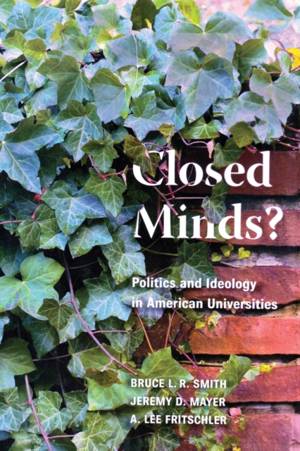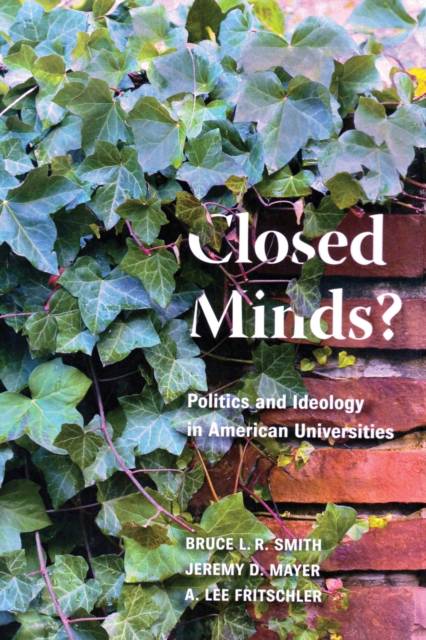
- Afhalen na 1 uur in een winkel met voorraad
- In januari gratis thuislevering in België
- Ruim aanbod met 7 miljoen producten
- Afhalen na 1 uur in een winkel met voorraad
- In januari gratis thuislevering in België
- Ruim aanbod met 7 miljoen producten
Closed Minds?
Politics and Ideology in American Universities
Bruce Smith, Jeremy D Mayer, A Lee FritschlerOmschrijving
Contrary to popular belief, the problem with U.S. higher education is not too much politics but too little. Far from being bastions of liberal bias, American universities have largely withdrawn from the world of politics. So conclude Bruce L. R. Smith, Jeremy Mayer, and Lee Fritschler in this illuminating book. C losed Minds? d draws on data from interviews, focus groups, and a new national survey by the authors, as well as their decades of experience in higher education to paint the most comprehensive picture to date of campus political attitudes. It finds that while liberals outnumber conservatives within faculty ranks, even most conservatives believe that ideology has little impact on hiring and promotion. Today's students are somewhat more conservative than their professors, but few complain of political bias in the classroom. Similarly, a Pennsylvania legislative inquiry, which the authors explore as a case study of conservative activism in higher education, found that political bias was ""rare"" in the state's public colleges and universities. Yet this ideological peace on campus has been purchased at a high price. American universities are rarely hospitable to lively discussions of issues of public importance. They largely shun serious political debate, all but ignore what used to be called civics, and take little interest in educating students to be effective citizens. Smith, Mayer, and Fritschler contrast the current climate of disengagement with the original civic mission of American colleges and universities. In concluding, they suggest how universities can reclaim and strengthen their place in the nation's political and civic life.
"Specificaties
Betrokkenen
- Auteur(s):
- Uitgeverij:
Inhoud
- Aantal bladzijden:
- 278
- Taal:
- Engels
Eigenschappen
- Productcode (EAN):
- 9780815734239
- Verschijningsdatum:
- 11/08/2008
- Uitvoering:
- Paperback
- Formaat:
- Trade paperback (VS)
- Afmetingen:
- 152 mm x 229 mm
- Gewicht:
- 426 g

Alleen bij Standaard Boekhandel
Beoordelingen
We publiceren alleen reviews die voldoen aan de voorwaarden voor reviews. Bekijk onze voorwaarden voor reviews.









